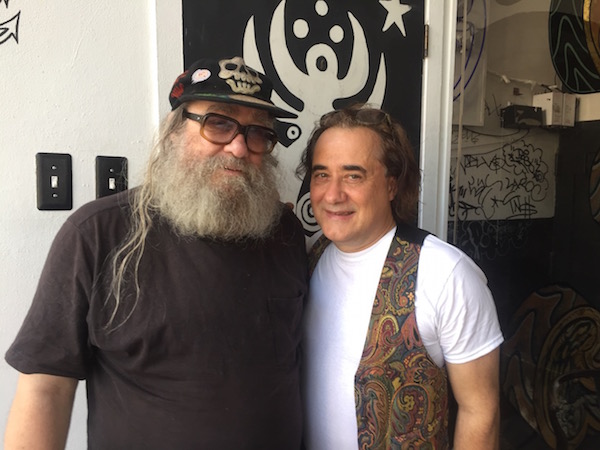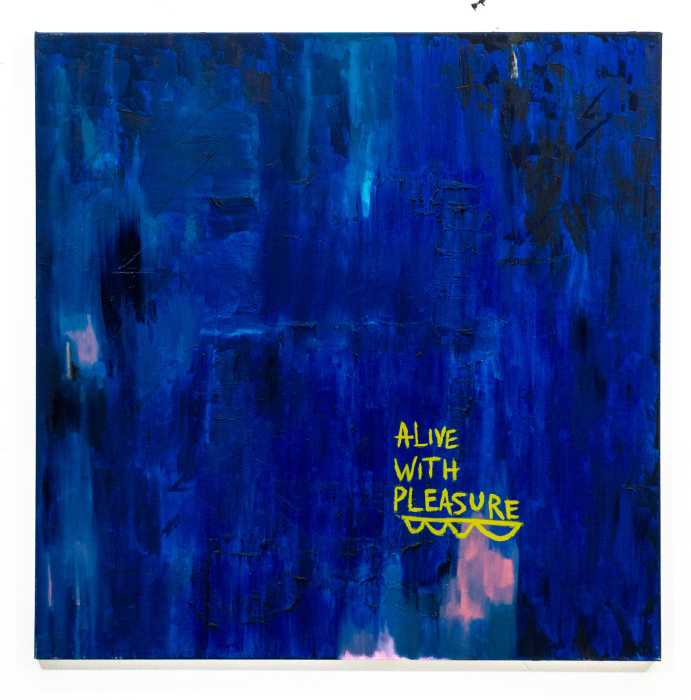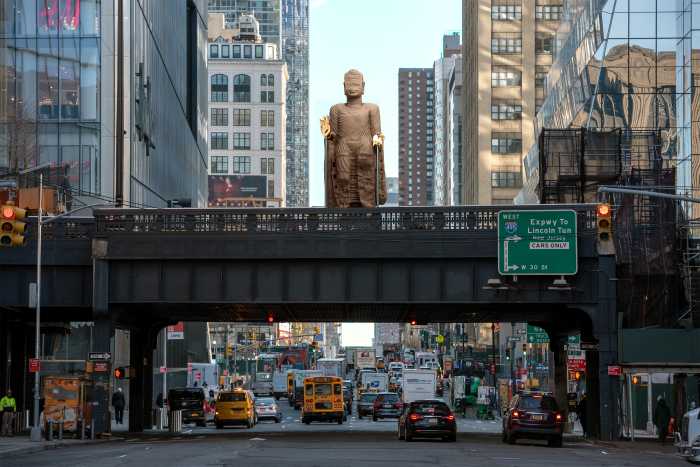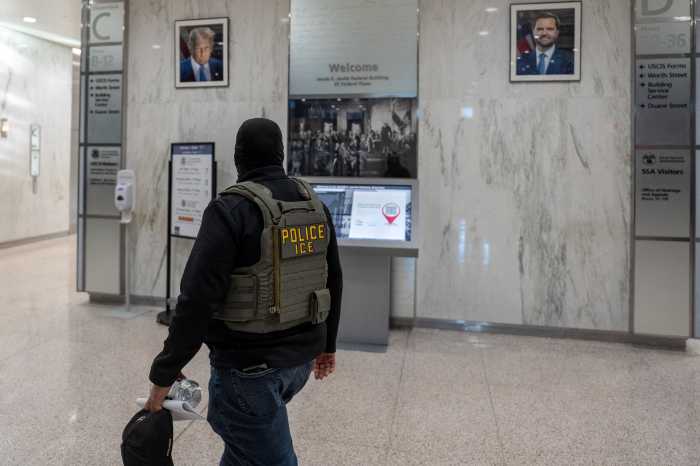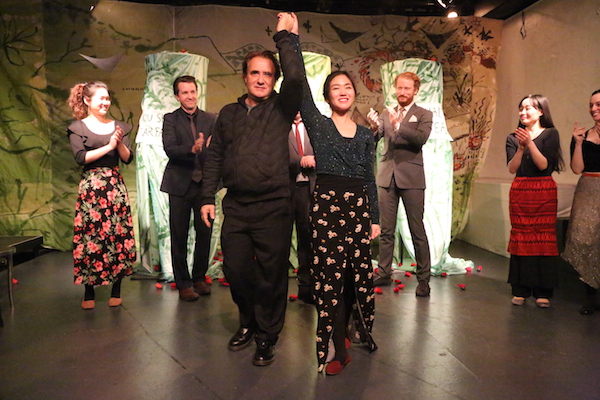
BY PUMA PERL | Several weeks ago, a friend, Clayton Patterson, messaged me, suggesting that I interview Keith Patchel, a recent Acker Award winner in the category of composer/producer. “Keith has been able to make the different switches to stay relevant in the game of staying in the game. Now he’s about to kick everything up to a higher level,” wrote Clayton, an artist/activist/producer who knows a thing or two about kicking it up. “Keith was part of the punk thing with Richard Lloyd,” he continued. “He recently wrote an opera, ‘The Plain of Jars,’ the site of the United States Laotian bombings.” From punk to opera. Set it up, I responded.
We met at Clayton’s storefront, winding our way from punk to global themes in a non-linear conversation. As Patchel remarked, “Real punks were revolutionaries.” We agreed that music transforms not only the arts, but also our visions of the world and ourselves. Raised upstate, Patchel graduated from the University of Buffalo with a fine arts degree; John Cage and Aaron Copland were among the guest lecturers he met, while studying composition with Lejaren Hiller. He’d already started some bands when he moved to New York City in 1979, reconnecting with Cage and meeting other avant-garde artists, as well as younger musicians and denizens of the punk scene. He formed a band called The Opportunists, which backed up Joe Bidewell, and, through him, met John Cale and Richard Lloyd, who invited him into the Richard Lloyd Quartet. During this period he began graduate work at Queens College.
“It was two very different lives,” Patchel reflected. “Music theory/composition studies with composer George Perle and playing in rock bands.” In January of 1985, having rejoined Richard Lloyd’s band, the acclaimed “Field of Fire” album was recorded in Stockholm, Sweden. When Patchel returned to his Midtown apartment, he discovered a new roommate had moved in — some Columbia student named Barack Obama.
Patchel later moved to London for several years, and, in the mid-’90s, to Bogotá, Colombia, where he found fame and infamy after writing a song about the death of Pablo Escobar. Upon his return to the United States, he continued his interest in electronic music, scoring films, including the Emmy-nominated “Finishing Heaven,” starring Ruby Lynn Reyner, and performing as a guitarist and singer. Upon the recommendation of composer Milton Babbitt, he began a new course of studies at The Juilliard School, finding what he calls “a second level of maturity as a composer.”
Over the last several years Patchel’s friendship with his neighbor, Carter Emmart, has led to a professional collaboration, merging arts and humanitarianism. Emmart is the Director of Astrovisualization at the Rose Center for Earth and Space, which houses the rebuilt Hayden Planetarium at the Museum of Natural History. They created MARSBAND, merging improvisational instrumentation with an “immersive exploration” of space and the planets by way of “an educational, musical meditation” (click here for info on their Aug. 1 performance). Patchel, who is currently the Composer in Residence at the NYU Music Experience Design Lab (MusEDLab), has developed a linkage between NYU and the Museum of Natural History. “This was not for financial gain,” he said. “It was the right thing to do.”
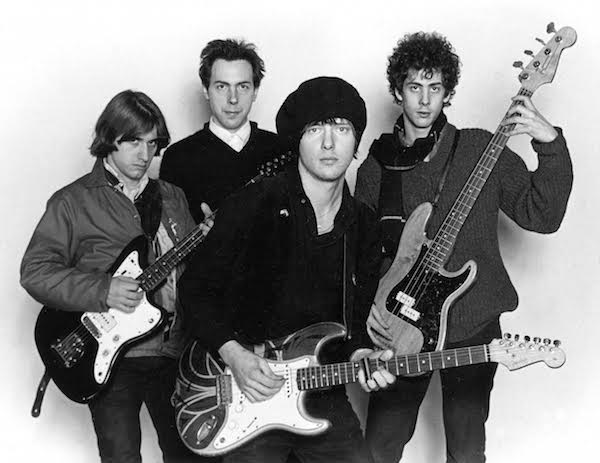
Emmart has long been involved with humanitarian work in Southeast Asia; he recommended that Patchel read Fred Branfman’s “Voices from the Plain of Jars,” a compilation of essays, poems, and drawings by Laotians. Originally published in 1972, Branfman interviewed over 1,000 survivors of the secret air war waged upon Laos by the United States during the Vietnam era (1964-73). “I knew I had to do something,” said Patchel. His resolve to tell the story led him to compose an experimental chamber opera, “The Plain of Jars,” which premiered December 2016 at W. 52nd St.’s Medicine Show Theatre and was described by Noj Treblig as “a significant cultural event that should be noticed and honored.”
Some of it is spoken, some sung. “The play turns into an opera,” explained Patchel, who plans to keep the genre going with additional installments under the umbrella title, “The American Empire.” The now retired head of the NYU Music Department, Dr. John Gilbert, worked with him as the play developed and is credited as Executive Producer. Following a 2017 MARSBAND show in Singapore, Emmart guided him on a tour of Laos, including a visit to the Plain of Jars. They plan to form alliances with other groups, including MAG (Mines Advisory Group), to bring worldwide attention to the contamination of Laos — which, unbeknownst to many, is the most bombed country per capita in the world. In 2016, President Obama pledged 90 million dollars to clear up the unexploded ordnance that continue to contaminate the soil.
The opera consists of eight characters and two settings, a Laotian field and the White House. A multimedia production, visual projections are included. In the opening scene, four Laotian women express joy in the harvesting season. The second scene moves to the White House, with President John F. Kennedy welcoming Richard Nixon, Lyndon B. Johnson, and Henry Kissinger to Camelot. Kissinger and Nixon agree that all weapons must be used to stop communism “or the dominoes will fall.”
Patchel hopes to keep a “small guerilla ensemble” and develop a vehicle for student productions. As Clayton concluded, “I didn’t know a lot about Laos and Cambodia. Writing this keeps it alive. There is still vitality down here pushing forward. Our lives are rich encyclopedias of Downtown history.”
“The Plain of Jars” is part of NYU’s Impact Festival (click here for tickets). Thurs. & Fri., July 27 & 28, 8pm and Sat., July 29, 2pm & 8pm at NYU’s Black Box Theatre (82 Washington Square East at Washington Place). Suggested donation of $20 cash at the door.
